The nursing diploma is beneficial for any potential person who wishes to help the elderly and loves to take good care of them. At a certain age, a person needs help, and they become dependable on others but in our busy lives, no one can bear the time to do that,
A Nursing Diploma is not just a course It will open your heart to taking care of old people. Also, If a person knows how to nurse a person, they can easily be a core support to the elders.
The nursing diploma is a 2-3 year diploma programme in which one get to know how to assist the elderly and nurse them with care. But if you are looking to get this knowledge in a timely manner, then you must visit our course. During the course, the students can also learn about the fundamentals of nursing, community Disease and medical-surgical operations. Explore your potentia skill with our course.
Effective Communication in Nursing
A nursing diploma in the UK is a type of vocational degree that gives you the information and abilities needed to work as a registered nurse. This course combines classroom instruction with supervised clinical assignments in hospitals and other healthcare settings.
For nurses, having effective communication skills is essential to providing patients with high-quality care, not merely a soft talent. It guarantees that patients feel heard and understood, builds trust, and lowers errors. Benefit yourself by joining our course
There are some tips about effective communication as a nurse:
Developing your listening skills:
As a nursing diploma student, it’s important to communicate properly with potential patients.
-Active Listening: Attend to more than just what is said. Be mindful of both spoken and nonverbal clues, such as tone, facial expressions, and body language.
-Reduce interruptions: Offer patients your full focus. Give them time to complete their ideas before answering.
-Exhibit empathy: recognise their emotions and worries. Sayings like “I understand why you are afraid” or “That sounds difficult” are helpful.
Nursing Assistant Diploma
Bold and Clear Communication:
-Clarity is key: Make use of clear, concise wording. Steer clear of medical language unless it is truly required. Transform complicated procedures into patient-empowering explanations.
-Customise Your Interaction: Change the way you communicate with each patient. Take into account your age, education, and cultural background.
-Validate Understanding: Assess comprehension by applying teach-back methods. To make sure you and the patient agree, ask the patient to reiterate what they understand.
Effective Communication in Different Scenarios:
-Cultural Sensitivity: Understand the cultural beliefs and respect communication style. When required, make use of interpreters.
-Delivering Difficult News: Act with compassion and honesty. Give them time to take in the information and candidly respond to any queries they may have.
-Cooperation with Coworkers: Speak succinctly and clearly with physicians, counsellors, and other medical
Health and Safety in Nursing
Compassion and dedication are the foundations of the nursing profession. However, there is always a risk-taking dance involved in the admirable act of providing care for others. Health and safety must be given first priority in order to ensure patients’ and nurses’ wellbeing.
As a nursing diploma student, it is important to maintain hygiene. The best defence against the transmission of infection is still frequent handwashing. Wearing the proper personal protective equipment (PPE), such as masks, gowns, and gloves, reduces the amount of bodily fluid and airborne pathogen exposure. It is essential to handle sharps—from needles to scalpels—safely to avoid unintentional harm.
Learning and practising proper body mechanics, especially when lifting patients, is essential to preventing back strain and other injuries. Utilising ergonomic concepts to adapt workstations and assistance equipment further lowers physical stress. Reporting any work-related injuries promptly guarantees adequate treatment and prevents future mishaps.
Hygiene in Nursing
As a nursing diploma student, it is your utmost responsibility to maintain hygiene, as the elders are fully your responsibility. After a specific age, people become sensitive and need proper care. As a nurse assistant, it’s also important to show love to the patients. One crucial component of nursing care is hygiene. It refers to procedures that support keeping things neat and nurses and patients safe.
For more details, visit our Nursing Assistant Diploma Course
Here are some points to maintain hygiene properly:
-Frequently wash your hands with soap and water, or rub your hands with an
-If you come into contact with bodily fluids, wear gloves.
-Get rid of contaminated waste the right way.
-Regularly clean and disinfect surfaces.
-Inform patients of the value of maintaining good hygiene.
Why should a nurse maintain hygiene?
There are many reasons why hygiene is important in nursing. Here are a few of the most important:
-To stop the spread of infection: One of the main risks associated with hospital stays is infection. Nurses can lessen the chance that patients will become sick by practicing good hygiene.
-To encourage the comfort and wellbeing of patients: Maintaining proper hygiene can enhance patients’ comfort and overall health. It may also aid in the promotion of healing.
-To protect the dignity of the patient: individuals who are unable to take care of themselves may feel defenceless and undeserving. Hygienic care is one way that nurses can support the preservation of their dignity.
Nurses can enhance patient outcomes, forge close bonds with patients, and foster a more upbeat and cooperative hospital atmosphere by practicing these communication skills. Keep in mind that dialogue is a two-way street.
Through attentive listening, clear communication, and awareness of nonverbal signs, nurses may guarantee that their patients experience a sense of worth, empowerment, and knowledge throughout their healthcare journey. Benefit yourself from the noble profession of nursing.
Frequently Asked Questions
Income tax accounting helps businesses and individuals calculate their tax obligations and ensures compliance with tax rules.
Nursing assistants (also known as HCAs) are in high demand in the UK. An aging population and staffing shortages create a growing need for qualified caregivers. QLS-endorsed training programs ensure high standards, making HCAs even more valuable.
Here are a few of the most in-demand areas:
Social Care Nurses
Mental Health Nurses
Children’s/Paediatric Nurses
- All Courses
- QLS Endorsed Single Course1008
- Management Courses371
- Mega Bundles370
- Technology Courses234
- Teaching Courses194
- Business Courses108
- Law Courses65
- Marketing Courses65
- Job Guarantee Programme53
- QLS Endorsed Single Course with Free Certificate37
- Counselling Courses29
- Health Courses12
- Creative Courses9
- Development Courses7
- Regulated Courses6
- Psychology5
- Agriculture Courses3
- Engineering Courses2
- Arts Courses1




0 responses on "Benefits of Studying Diploma in Nursing"